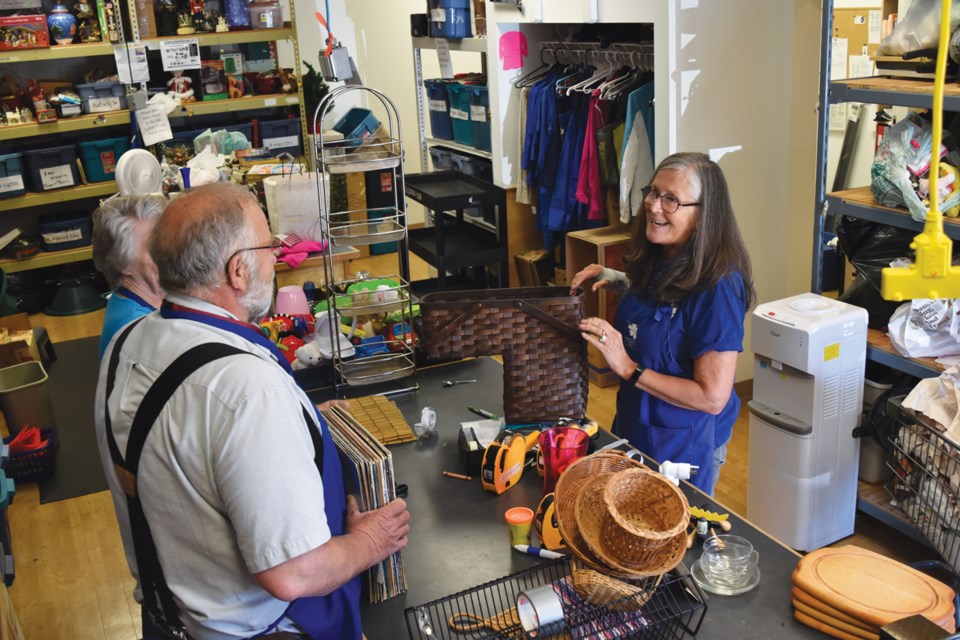Close to $80,000 in grant funding has been awarded by the Healthcare Auxiliary to 10 non-profits through a grant program aimed at supporting preventive health care on the Sunshine Coast.
“Rather than us always supporting the hospital, which is acute care, we’re trying to fund programs that are going to keep people from actually getting there,” said Jennifer Gray, Sunshine Coast Healthcare Auxiliary VP.
Awards ranged from $4,500 to $10,000 and recipients include the Pender Harbour Seniors’ Initiative and Pender Harbour Health Centre, Arrowhead Clubhouse, Hospice Society, Sunshine Coast Association for Community Living, Special Olympics, and a number of programs run through Sunshine Coast Community Services Society.
The Sunshine Coast is one of the few in the province that provide grants through a formal committee, of which Auxiliary VPs Warren Jones and Jennifer Gray are co-chairs.
Since the program is new – it launched three years ago – applicants have been few and the committee has been reaching out to organizations to encourage them to apply, but “critical mass is going to be hitting us pretty soon,” Gray said.
The 500-member and six-branch organization raises money through their gift shop at Sechelt Hospital, their thrift store in Sechelt, and donations, resulting in approximately $500,000 in net income in 2018. A percentage of that is then earmarked for the grant program.
When the program launched in 2017, membership allocated about four per cent of the year’s previous net income. Now, Auxiliary members have approved 20 per cent of earnings to be used on the grant program.
“We’ve come a long way – we are the highest auxiliary for giving out grants last year in the province,” Jones said. “There are a lot of hardworking people who want to help health care on the Coast.”
The idea began about five years ago, when the Auxiliary began receiving requests to help fund small programs run by non-profits on the Sunshine Coast.
While the Auxiliary assists with services such as meal programs, social gatherings and even hair cuts at care facilities, and distributes bursaries, they did not have a formal system for dealing with funding requests from external organizations, which must be approved by members, so a committee was struck to streamline and formalize the process.
Gray said the Auxiliary was attracted to direct donations because it breaks through bureaucracy and can be more cost effective to spend money to keep people out of hospitals.
It also gives the auxiliary more opportunities to expand health care funding. “Vancouver Coastal Health does not cover all of these areas,” Jones said. “We’re one of the only sources they can go to ensure they have the funds,” added Gray.
Other auxiliaries in the province are making similar moves away from focusing primarily on hospitals and other community needs, such as public and mental health services that can support people at home.



